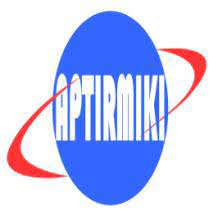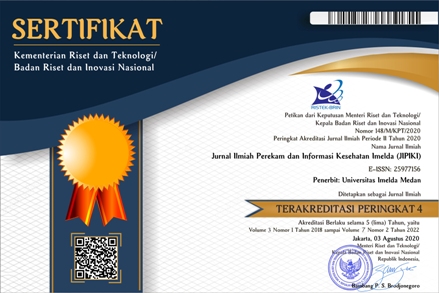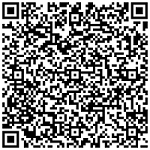Implementasi Standar Interoperabilitas HL7-FHIR Pada Pertukaran Rekam Kesehatan Elektronik di Puskesmas
DOI:
https://doi.org/10.52943/jipiki.v9i1.1334Keywords:
Interoperability, FHIR, Electronic Health Record, Data Exchange, Health Information SystemAbstract
Background: The electronic system used in the implementation of the Electronic Health Record (RKE) must have compatibility and/or interoperability capabilities. In RKE interoperability in Health Facilities must use a health data interoperability service platform managed by the Ministry of Health, namely Health Level Seven International-Fast Healthcare Interoperability Resources (HL7-FHIR). The use of the HL7-FHIR is an example of Apple connecting the Apple Health App to the RKE and Apple Watch. The biggest interoperability challenges of RKE are information stored in different databases which have different formats and data types that are not compatible with each other, making it difficult for different systems to interpret correctly, and there is no interoperability platform. This research was conducted with the aim of analyzing the application of HL7-FHIR on RKE interoperability at SIMPUS so that it is expected to facilitate the implementation of interoperability between health service information systems in Indonesia. Method: This type of research is descriptive qualitative with an action research design. Data collection was carried out using interviews and FGDs with 3 members of the Development Team, as well as document studies. Results: FHIR Resources used as needed in this study were 8 resources and 97 data elements. However, it requires the addition of 16% data elements in the HL7-FHIR data elements. Conclusion: In general, the HL7-FHIR standard can represent the RKE model for interoperability on SIMPUS.
Downloads
References
A. Roehrs, C. A. da Costa, and R. da Rosa Righi, “OmniPHR: A distributed architecture model to integrate personal health records,” J. Biomed. Inform., vol. 71, pp. 70–81, 2017, doi: 10.1016/j.jbi.2017.05.012.
D. Coghlan and Brannick. T, Doing Action Research in Your Own Organization. London: Sage Publications, 2005.
Handiwidjojo, “Perkembangan Teknologi Rekam Medis Elektronik Di Rumah Sakit,” J. EKSIS Univ. Kristen Duta Wacana Yogyakarta, vol. 2(1), pp. 36–41, 2009, [Online]. Available: https://media.neliti.com/media/publications/79132-ID-rekam-medis-elektronik.pdf.
I. Hidayat, “Penerapan Standar FHIR untuk Interoperabilitas Rekam Kesehatan Elektronik Indonesia,” Institut Teknologi Bandung, 2020.
IEEE, “Standart Computer Dictionary: A Compilation of IEEE Standard Computer Glossaries,” 1991.
Kemenkes RI, “Peraturan Menteri Kesehatan Republik Indonesia Nomor 24 Tahun 2022 Tentang Rekam Medis,” 2022.
Kemenkes RI, Situasi dan Tantangan Kesehatan Digital Indonesia CETAK BIRU STRATEGI TRANSFORMASI DIGITAL KESEHATAN 2024 1. 2021.
L. M, “Why Digital Medicine Depends on Interoperability,” Npj Digit. Med., vol. 2(1), p. 79, 2019, [Online]. Available: http://doi.org/10.1038/s41746-019-0158-1.
L. Lazuardi, G. Y. Sanjaya, P. B. Ali, R. G. M. Siahaan, L. Achmad, and H. Wulandari, “Interoperability of Health Digitalization: Case Study on Use of Information Technology for Maternal and Child Health Services in Indonesia,” Bus. Inf. Syst., no. July, pp. 317–327, 2021, doi: 10.52825/bis.v1i.53.
M. E. Mansoor and R. Majeed, “Achieving Interoperability among Healthcare Organizations,” Blekinge Institute of Technology, Sweden, 2010.
R. I. Sudra, “Standardisasi Resume Medis Dalam Pelaksanaan PMK 21 / 2020 Terkait Pertukaran Data Dalam Rekam Medis Elektronik Standardization of Medical Resume in the Implementation of PMK 21 / 2020 Related to Data Exchange In Electronic Medical Records,” Jurnal Ilmu Perekam Medis dan Informasi Kesehatan Imelda, vol. 6, no. 1, pp. 67–72, 2021.
U. Adi, Penelitian Kualitatif Dalam Pelayanan Kesehatan: Tak Kenal Maka Tak Sayang. Yogyakarta: Gadjah Mada University Press, 2020.











